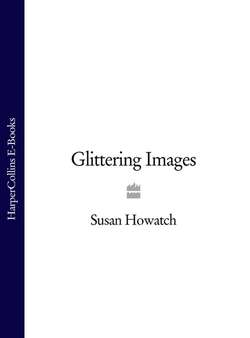Читать книгу Glittering Images - Susan Howatch - Страница 13
V
ОглавлениеI thought he would leave then but he stayed. For a time we talked of College matters; he wanted to know whether the undergraduates were still susceptible to the evangelical Christianity of Frank Buchman’s ‘groupists’ but I said I thought that influence was on the wane.
‘The tragedy of such movements,’ said the Archbishop who had sanctioned the Buchmanites in 1933 and had probably lived to regret it, ‘is that their good intentions are so vulnerable to abuse. Troubled young men should seek to purge their souls in private confession before a priest, not in the so-called “sharing” of painful experiences with a group who may be spiritually no wiser than they are.’ So subtle was his manipulation of the conversation that it was not until he asked his next question that I perceived the drift of his thoughts. ‘Do you hear many confessions, Charles?’
‘I never seek them. I always stress that the Church of England says only that one may make confession, never that one must. But of course if an undergraduate comes to me, I hear him.’
‘And you yourself? I was wondering,’ said Lang, finally revealing the core of his curiosity, ‘if you might wish to take advantage of this rare private meeting by raising any problem which you feel would be eased by a confidential discussion.’
I allowed only the briefest silence to elapse before I replied, but I knew my silence had been not only noted but reserved as a subject for future speculation. ‘How very thoughtful of you, Your Grace,’ I said, ‘but I’m happy to say that the only serious problem I have at present is to decide what to put in my new book.’
‘A problem which I’m sure your intellect will be more than capable of resolving in due course! But may I ask who your spiritual director is nowadays?’
‘I still go to the Abbot of the Fordite monks at Grantchester.’
‘Ah yes, Father Reid. I wish I had the time to call on him while I’m in Cambridge, but alas! One is always so monstrously busy.’ Lang made a theatrical gesture of despair, glanced at his watch and rose to his feet. My audience was drawing to an end.
I asked for his blessing, and when he gave it to me I was aware of his gifts as a churchman; I remembered how his care and concern had sustained me during the difficult years both before and after my ordination; I recalled how his generosity of spirit, glamorously displayed, had sparked my understanding that Christianity could be not a pallid priggish way of life but a glittering realization of one’s finest possibilities. People can be led to Christianity by infinitely diverse routes, and there was no denying that I had been led by Lang’s worldly success to the creed which rated worldly success unimportant. Beyond the glittering image lay the stark absolute truth. It was a juxtaposition which had fascinated me ever since I had decided to be a clergyman, but as I now looked without effort past Lang’s worldly glamour to all the flaws of his powerful personality, I was conscious of amazement that he should have had such an influence on my life. How had this vain, pompous, arid old bachelor ever inspired me to a discipleship which emphasized the humility and simplicity of Christ? The inspiration struck me as little short of miraculous, but then guilt assailed me because although I owed Lang so much I could no longer view him through those rose-tinted spectacles which I had worn with such unquestioning ease in the past.
He departed. The ensuing solitude came as a relief, and retiring at once to my bedroom I stripped off both gown and cassock before pausing to light a cigarette. At once I felt more relaxed, and as soon as I was dressed with the minimum of formality, I returned to my sitting-room, mixed myself a substantial whisky and soda and began to contemplate my mission to Starbridge.
